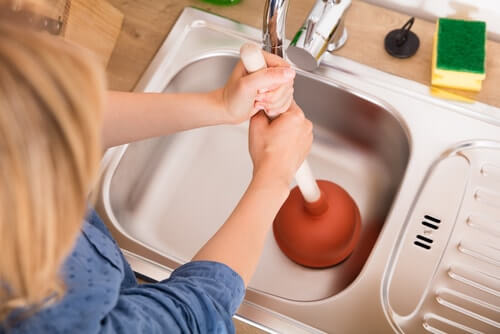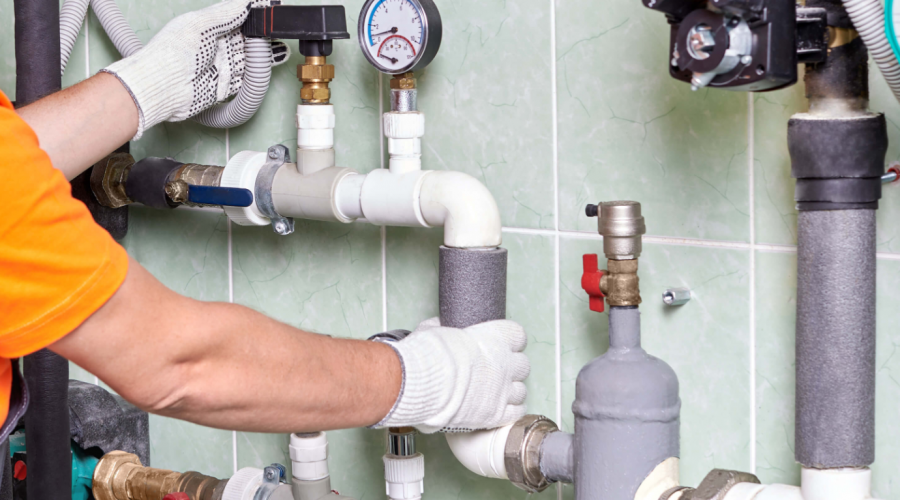Each person maintains their private opinion with regards to Expert Tips for Emergency Plumbing Repairs.

Pipes emergency situations can strike any time, creating tension and prospective damage to your home. Whether it's a burst pipe, a stopped up drain, or a dripping tap, understanding just how to take care of the situation up until a professional plumbing professional shows up can save you from more problems. This post supplies crucial emergency plumbing ideas to aid you mitigate damage and restore control throughout a pipes situation.
Switch off the Water Supply
The initial step in any type of pipes emergency situation is to shut off the supply of water. For localized problems, such as a dripping tap or toilet, switch off the valve near the component. When it comes to a significant leak or burst pipe, find your home's main water shut-off valve and turn it off promptly. Understanding the area of these shutoffs ahead of time can save useful time throughout an emergency situation.
Address Small Leaks with Temporary Fixes
Small leaks can quickly become significant issues if left unattended. Utilize these temporary repairs till specialist aid gets here:
While these fixes aren't permanent, they can aid decrease water loss and damages.
Unclog Drains Safely
A clogged up drainpipe can be an aggravating and messy issue. Here's just how to tackle it:
If these methods do not work, stay clear of making use of excessive pressure, as it might worsen the obstruction.
Handle Overflowing Toilets
An overruning toilet can trigger immediate disorder. Here's what you ought to do:
Turn off Your Water Heater
In specific emergencies, such as a burst pipe, it's wise to shut off your hot water heater. This protects against getting too hot or damages to the system when water quits streaming. Switch off the power supply to the hot water heater (electrical or gas) and allow it cool down to avoid potential risks.
Temporarily Stop a Burst Pipe
A burst pipeline can lead to considerable water damage in mins. To minimize the issue:
Call an expert plumbing technician immediately to deal with the trouble permanently.
Deal With Frozen Water Lines Thoroughly
In cooler climates, icy pipes are an usual emergency. If you think an icy pipe:
Prevent More Damage
Taking fast action to minimize damage can save you money and time over time. Here's how:
. Have an Emergency Pipes Kit
Prepare a standard plumbing emergency situation set to handle small issues effectively. Your package ought to consist of:
Having these tools handy can make a significant distinction in your ability to take care of emergencies.
Know When to Call a Specialist.
While quick fixes can help momentarily, particular plumbing concerns require prompt professional interest. Call a plumbing if:.
Promptly calling a professional guarantees the concern is fixed appropriately and avoids additional complications.
Conclusion.
Plumbing emergency situations can be frustrating, but with the best understanding and devices, you can take care of the situation efficiently up until aid gets here. By turning off the supply of water, attending to little leakages, and making use of short-lived fixes, you can minimize damage and keep your home safe. Keep in mind, these ideas are short-term options; always speak with a certified plumbing to deal with the origin of the trouble. Prep work and quick thinking are your ideal allies in any kind of pipes emergency.
8 Helpful Tips for Managing Plumbing Emergencies at Home
If your plumbing system hasn’t failed once, wait for it because almost everyone has a story to tell. Sometimes, it could be simple emergencies such as a leaking pipe, a blocked cistern, or even a big burst pipe. In situations like this, you need to have some handy tips to save you some money and from possible damages.
Take care of minor issues early.
Sometimes, you could have avoided an emergency by taking proactive measures while it was still early. Some major plumbing emergencies can be a result of an ignored minor issue. We recommend that you have items like plumbing tapes and other related items. A plumbing tape can allow you to manage minor leaks before the plumber arrives.
Cut off the water supply.
This tip is essential in almost any type of leakage problem. For problems like minor leakages in the toilet or kitchen, turn off the supply that takes water to the affected pipes. If the leakage is a major pipe, you must shut off the supply valve to the entire building. This will help you avoid flooding your home and neighbors if you share a flat.
Know your plumbing system
Folks typically move into a new apartment without understanding the water supply around the building. This can prove disastrous if a water emergency arises and the plumber is far away. The previous tip will prove useless if you don’t practice this one. More importantly, know where your water shut-off valve is located – you’ll need that knowledge to prevent potential home floods.
Have some common handy tools
There are lots of plumbing emergencies that you can handle without hiring a plumber. That’s why you must keep some tools available always. Some tools that you can use to fix simple plumbing emergencies easily include plumbing tapes, screwdrivers, thread seal tapes, plungers, pliers, tape measures, and rubber gloves.
Insulate your pipes from cold
You’ll save yourself from many plumbing expenses if you protect your water pipes from the cold. This is because of the harmful effects that cold weather can have on your pipes. During winter, your pipes can burst from being overly expected to freezing temperatures. So, make sure insulators are there to keep the pipes working correctly.
Avoid practices that will clog your toilet.
Many people indulge in practices that can damage the plumbing system of the entire building. One of these is when they use their toilet to dispose-off garbage. They flush all kinds of things, such as paper towels, bandages, hairs, female sanitary products, etc., down the toilet. This will block your toilet in the long run, incurring unnecessary expenditures. Dump such waste in the trash instead.
Check your dials regularly.
Sometimes, there could be leakages in your home without noticing them in time. So, constantly monitor your water meter dial. If the dial is reading when there is nobody using water, this is an indicator that there is leaking. Check for leaks immediately. Call a plumber as soon as possible if you can’t find any.
https://www.constructionplacements.com/8-helpful-tips-for-managing-plumbing-emergencies-at-home/

Do you really like more info about Expert Tips for Emergency Plumbing Repairs? Give a short review directly below. We'd be delighted to see your ideas about this entry. Hoping that you visit us again in the future. For those who appreciated our blog post please don't forget to pass it around. We appreciate reading our article about What to Do During a Plumbing Emergency.
Click Here